The novel coronavirus came from China, and countries across the Indo-Pacific have been on the front line of confronting this pandemic. In this online-only event, Wilson Center experts will examine how this pandemic is affecting the region's geopolitics, and what these changes may mean for the United States.
Read MoreNeed to Know: Negotiations and Love Notes - Where Do The North Korea Nuclear Talks Stand? →
Jean Lee, Director of the Hyundai Motor-Korea Foundation Center for Korean History and Public Policy, walks us through where talks between President Trump and Chairman Kim stand today. And she gives us some insight into the tactics of the North Koreans and a peek into the horizon. To understand North Korea, there is no one better to hear from than Jean Lee.
Read MoreWith Alex Ward, Van Jackson, Abraham Denmark and Jean Lee
Wilson Center: Book launch of Van Jackson's "On the Brink" →
Throughout 2017, President Donald Trump and North Korean leader Kim Jong Un hurled insults and escalating threats of nuclear war at one another amid threatening shows of military force on the Korean Peninsula. In June 2018, in a remarkable about-face, they held a historic summit in Singapore, but seven months later, the United States and North Korea have failed to move beyond the vague promises on denuclearization forged by Kim and Trump.
In his new book, On the Brink: Trump, Kim, and the Threat of Nuclear War, former Pentagon insider and Korean security expert Van Jackson analyzes the U.S. response to North Korea's increasing nuclear threat in the context of Trump's aggressive rhetoric, prior U.S. policy failures, the geopolitics of East Asia, and North Korean strategy, including the acceleration of its nuclear program under Kim Jong Un. He argues that the Trump Administration's policy of "maximum pressure" brought the world much closer to nuclear war than many realize, and charts a course for the prevention of future conflicts.
As we look ahead to a proposed second Trump-Kim summit, join us at 10 am on Tuesday, February 5, 2019, for a discussion with Dr. Jackson, a Global Fellow with the Woodrow Wilson Center and senior lecturer in international relations at Victoria University of Wellington in Wellington, New Zealand, on his new book, the next Trump-Kim summit, the nuclear threat from North Korea and the potential for a diplomatic breakthrough.
Selected Quotes
Van Jackson:
“One thing that I hope you would take away from today is just how close we came in 2017, in early 2018, to the unthinkable. The world was closer, I am arguing in the book, to nuclear war, at that time than any time, since the Cuban Missile Crisis. And it was totally avoidable.”
“What scares me is that Trump and Kim Jong-Un, especially Trump, have personalized this nuclearized confrontation, in a way that holds our fates, hostage, to their personal chemistry. And on one side, on Kim Jong-Un side, this appears to be done in the name of national interest, it appears to be strategic. On the U.S. side, it is not at all clear that what is happening is done based on the calculation by the national interest. It feels pretty impulsive. It feels pretty rushed.”
“There was a relentless pressure building toward preventative war by the end of 2017 that had echoes of the 2003 buildup to the invasion of Iraq. And a preventative way would have been pathological, because North Korea already had the ability to put warheads on foreheads, to turn any conflict with the U.S. into a nuclear one.”
Jean H. Lee
“...One more thing that the larger context that we have to keep in mind is that the United States has what North Korean needs and wants. We should remember that....I do think Kim Jong-Un and the North Koreans have played this beautifully. But, at the end of the day, the United States has what he needs and wants. That’s a lifting of sanctions, possibly, a peace treaty, economic help, and so [we] should keep that in mind.”
Abraham Denmark:
“At the same time, I think that a lot of what North Korea has been doing in terms of building and testing nuclear weapons and ballistic missiles is not necessarily tied to what the United States has been doing. The development of nuclear weapons, [and] the development of these ballistic missiles have begun long before the Trump administration, begun long before the Obama administration, and the Bush administration before that. ”
Wilson Center: Geopolitical Implications of a New Era on the Korean Peninsula →
The Trump administration has gone through a remarkable shift in its approach to North Korea, culminating in an initial embrace of summit diplomacy. That shift, however, may have opened a Pandora’s box that will have profound implications not just for the future of the Korean Peninsula, but for Japan, China, and Russia as well. What is certain is that engagement with Pyongyang has already impacted East Asia’s geopolitics and will continue to do so moving forward.
This conference addressed the broader geopolitical consequences of diplomatic success and failure with Pyongyang, including the impact on alliance relationships and the future of U.S. power in the region.
Read MoreNational Geographic: Inside North Korea's Dynasty →
Advertisement
SYNOPSIS
With North Korea's relations with the rest of the world at a new and unpredictable inflection point, National Geographic Documentary Films presents INSIDE NORTH KOREA'S DYNASTY, a groundbreaking four-episode documentary series that examines the extraordinary history of the world's only communist dynasty, three generations in the making. A year in production, INSIDE NORTH KOREA'S DYNASTY is the ultimate story of a family's power, and the relationship among a father, a son and a grandson. The series provides a look at the Kim dynasty more complex and comprehensive than ever attempted before, revealing the workings behind the formidable family dynamics at the heart of an extraordinary country. Viewers will be immersed in the family's dark and surreal story, bringing a fresh perspective on a nation ruled for over seven decades by one dynasty. Understand the family, and you understand how this country works.
Read MoreMoon Jae-in and Inter-Korean Détente: Korea Strategic Review 2018 →
South Korean President Moon Jae-in allocated the bulk of his political capital to inter-Korean engagement during the first year and a half of his presidency. This strategy has paid dividends thus far in the form of inter-Korean summits, agreements, family reunions, military confidence building measures, and much more. However, domestic and geopolitical forces are likely to determine his agenda’s success. What implications will the U.S.–ROK alliance, China’s role in the region, and upcoming South Korean elections have for South–North détente?
Experts Joseph Yun, Jean Lee, James L. Schoff, and Chung Min Lee review Moon’s first year and a half in office and the challenges that lie ahead.
Read MoreKorea Global Forum 2018: A New Path Forward: Charting a Roadmap to Peace on the Korean Peninsula →
Jean Lee welcomes Cho Myoung-Gyon, Minister of Unification for South Korea, to Washington, DC, to share his thoughts on inter-Korean unity and prospects for peace on the Korean Peninsula.
Read MoreWilson Center: North Korea Summit: Historic Deal or Just a Historic Handshake?
With a handshake, U.S. President Donald Trump and North Korea’s Kim Jong Un made history, becoming the first sitting leaders of the Korean War foes to hold a summit. But was it just a photo op?
In this Ground Truth Briefing, Wilson Center experts considered whether the Singapore summit yielded real progress on denuclearization; the impact of these developments on U.S. diplomacy with other countries; China’s reaction; how the lives of average North Koreans could be affected; and what’s next in what President Trump calls “a new chapter” in U.S.-North Korea relations.
Read MoreMilken Institute Global Conference 2018: Avoiding War with North Korea
Is the perfect storm brewing on the Korean Peninsula? Jean Lee joins geopolitical experts at the Milken Institute Global Conference to discuss security in East Asia and potential avenues for conflict resolution.
Read MoreWilson Center: New Year, New Strategy: Shifting Policies on North Korea in 2018 →
On the eve of the summit between the leaders of the Koreas, several leading scholars discuss lessons from history, prospects for peace and reconciliation and implications for the United States, as President Trump prepares for his own summit with Kim.
Read MoreInternational Journalism Festival: Foreign correspondents: how women have changed the role →
From bureaus and Baghdad, Kabul and Pyongyang to editing suites in major capitals, more women than ever are shaping the news we receive from the rest of the world.
Read MoreWilson Center: The Trump-Kim Summit: High Stakes, Uncertain Prospects →
In a high-stakes diplomatic gamble, President Trump has accepted an invitation to meet with North Korean leader Kim Jong Un – and the dramatic development raises crucial questions:
Could this summit lead to meaningful constraints on North Korea’s nuclear program? What are the attitudes of China and South Korea toward bilateral U.S.-North Korean diplomacy? What preparatory work must be done to ensure a successful summit? And what would be the criteria for success?
In this Ground Truth Briefing, three veteran observers of U.S.-Asia policy and North Korea addressed these issues.
Read MoreUnited States Institute of Peace: Is Diplomacy Possible with North Korea? →
After months of escalating confrontation between North Korea and the United States, President Trump used his November visit to Asia to reinforce a policy of “maximum pressure” against the North Korean government. But he also hinted at the possibility of a diplomatic off-ramp in the dispute over North Korea’s missile and nuclear weapons development. North Korea and the United States have offered signals of openness to diplomacy. But how real is that possibility? Leading experts on North Korea and nuclear proliferation gathered at USIP to discuss this urgent question.
Read MoreKorea Economic Institute: Soap Operas and Socialism: Kim Jong-un’s Policy Priorities through TV Dramas in North Korea →
Romance, humor, tension — everyone loves a good sitcom, even North Koreans. But in North Korea, TV dramas are more than mere entertainment. They play a crucial political role by serving as a key messenger of the party and government policy.
Read MoreZocalo Public Square: Before going to war in North Korea, try understanding the place first →
With schoolyard taunts hurtling between Washington and Pyongyang, and fears of nuclear Armageddon escalating from Seoul to Tokyo to Los Angeles, the once-unthinkable idea of a military showdown between North Korea and the United States has become frighteningly plausible.
On an October evening when many Angelenos were pondering the opening game of the World Series rather than end-of-the-world scenarios, a Zócalo/UCLA panel discussion explored the question, “Is War With North Korea Inevitable?” By the end of an intense hour-long discussion at the National Center for the Preservation of Democracy in downtown Los Angeles, the consensus was that a catastrophic confrontation isn’t unavoidable. But to lower the odds of it happening, America’s policymakers and its public need a more nuanced and humanistic perspective on the reclusive rogue Asian nation, the panelists said.
Read MoreBROOKINGS NOW What do experts make of the North Korea challenge? 5 takeaways from a Brookings event →
What do experts make of the North Korea challenge? 5 takeaways from a Brookings event
Read MoreBrookings Institution: The path forward: Who is Kim Jong Un? →
Leading U.S. experts and former officials to identify actionable policy steps the White House and Congress should take to address the growing threat from North Korea.
Read MoreCOMEXI: North Korea: An unfinished war, an insight from Seoul by Jean H. Lee →
Why is August a particularly tense month in the Korean Peninsula? What is Kim Jong-un trying to achieve by showcasing his nuclear muscle? Journalist, Pulitzer nominee, and Global Fellow of the Wilson Center, Jean H. Lee, shares an insightful analysis of the North Korean crisis.
C-SPAN: The Rise and Rule of North Korea's Kim Dynasty →
The Sidebar with Steve Scully: As tensions with North Korea rise, this week we examine the history of that country's ruling Kim family. We spoke to Jean H Lee, author of "Kings of Communism: Inside Kim Jong Un's Bloody Scramble to Kill of His Family" in the September edition of Esquire Magazine.
Read MoreChicago Council: NORTH KOREA ON THE BRINK? →
What steps should the United States and South Korea take to maintain peace and stability in Northeast Asia?
Read More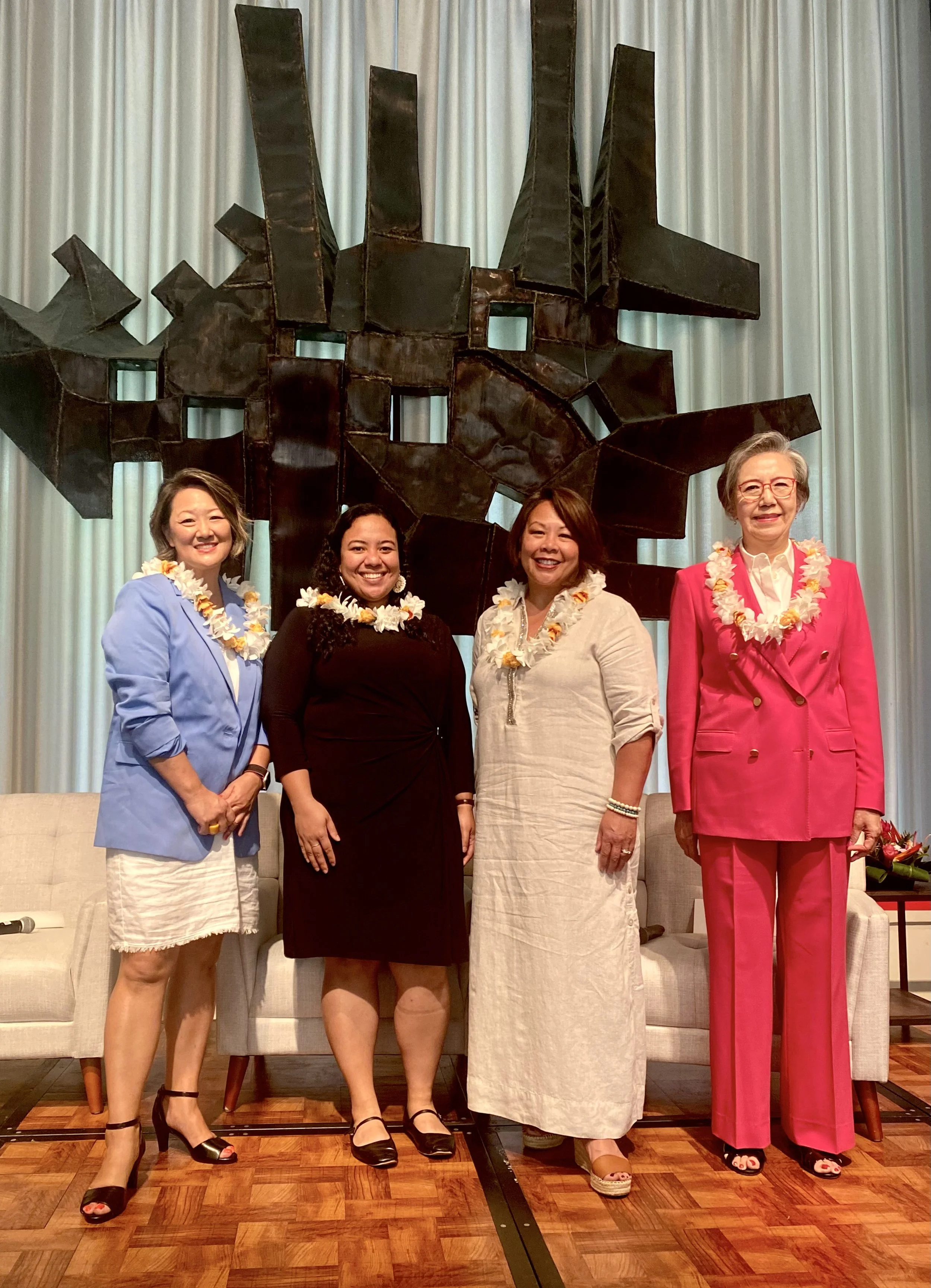
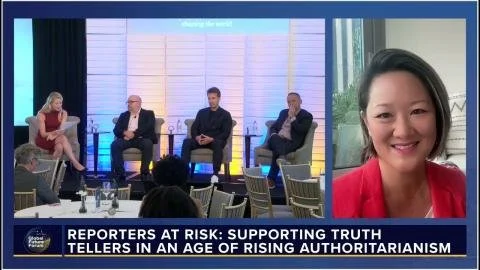
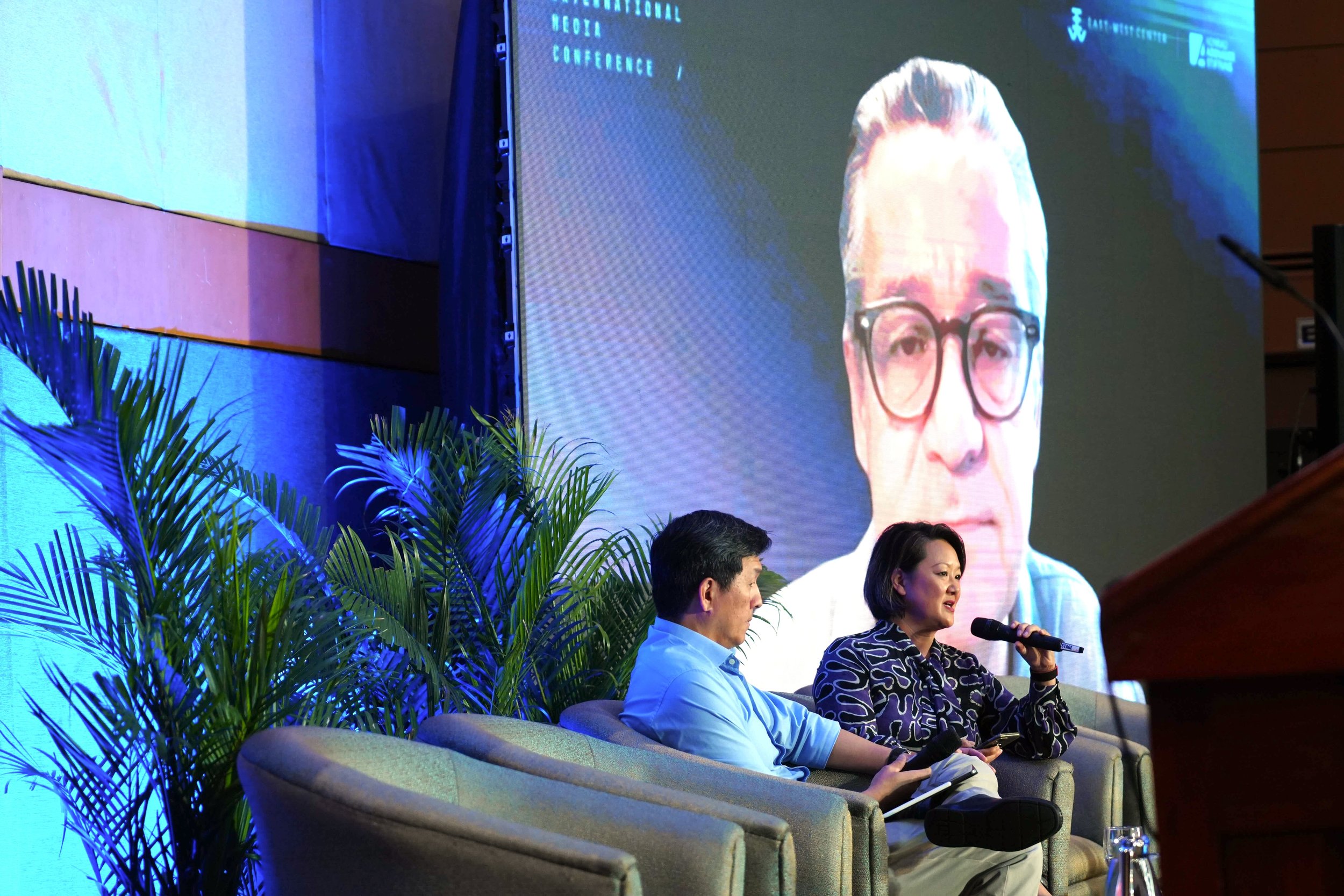

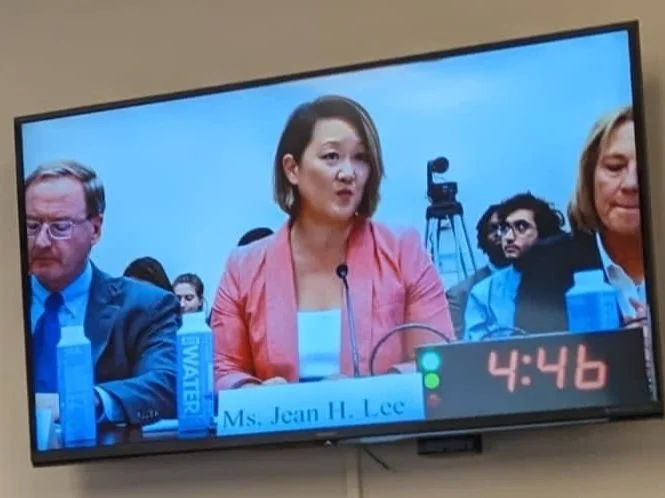


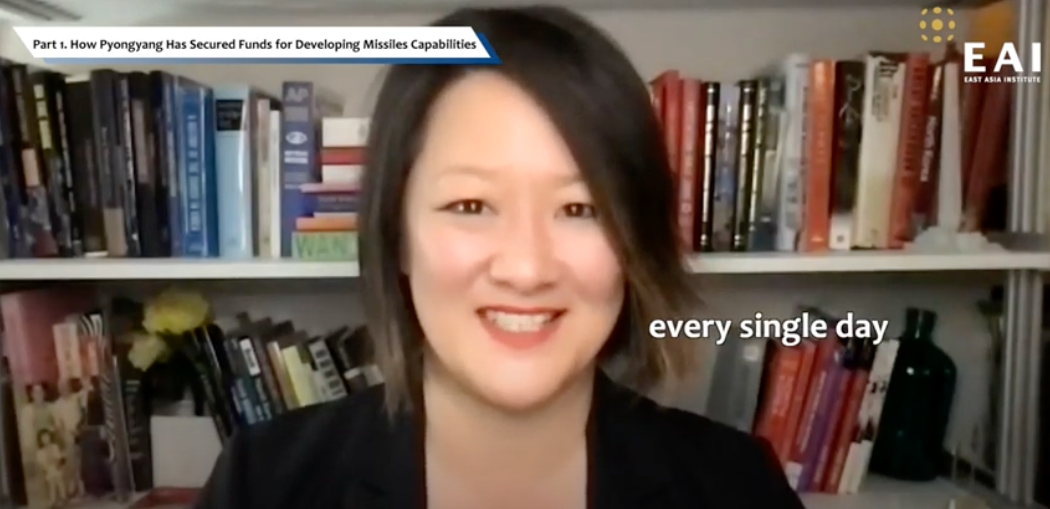







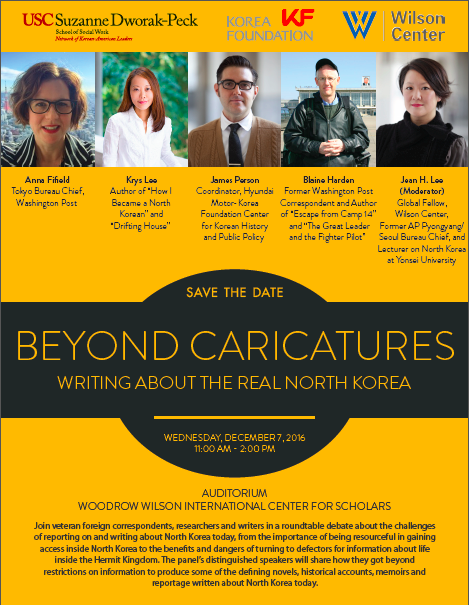






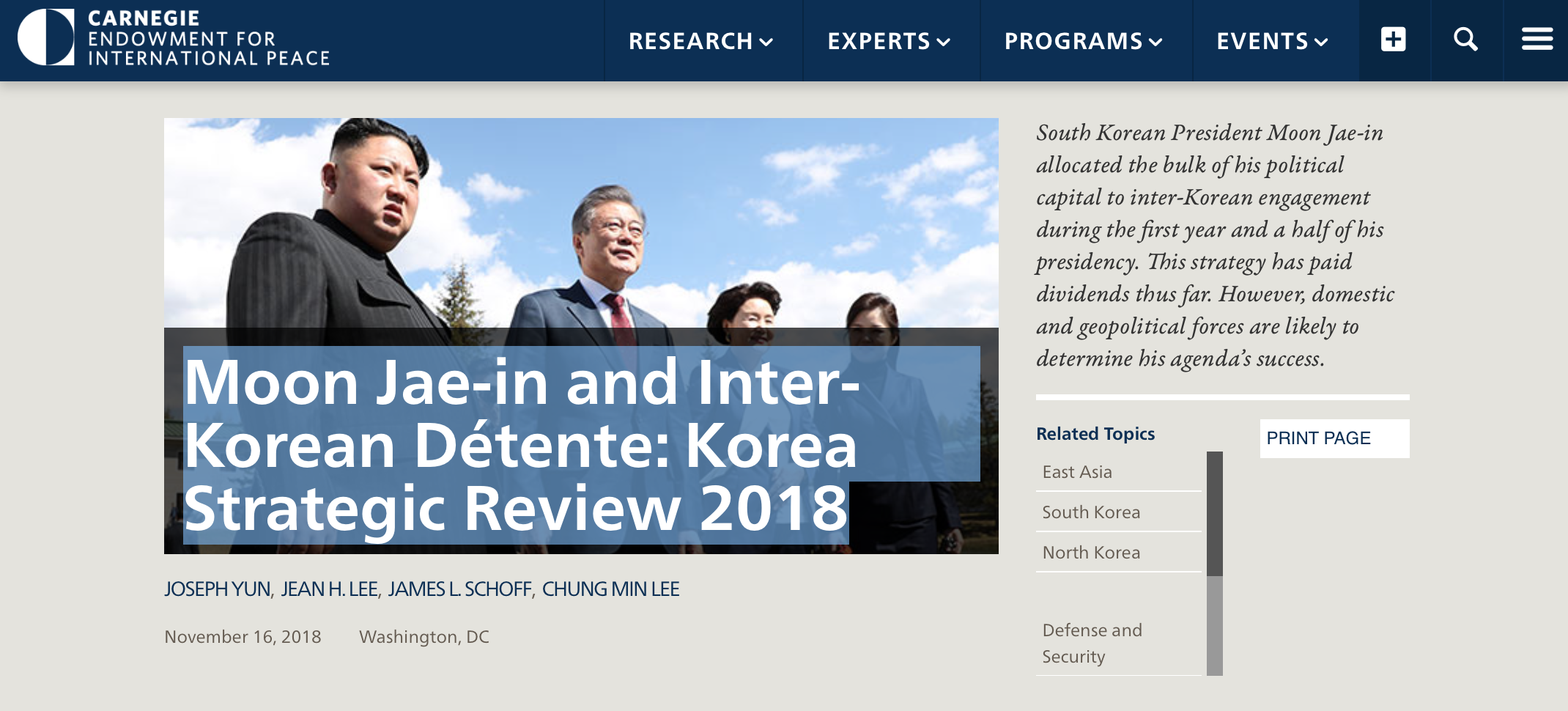



Leading U.S. experts and former officials to identify actionable policy steps the White House and Congress should take to address the growing threat from North Korea.